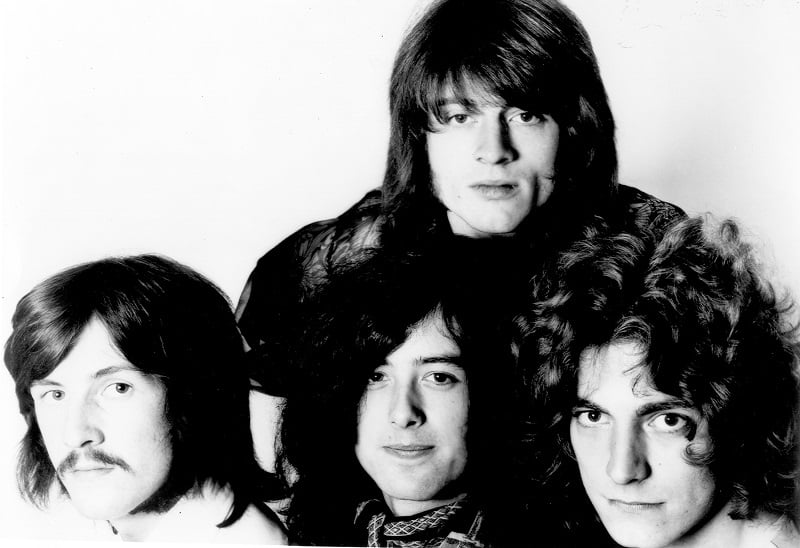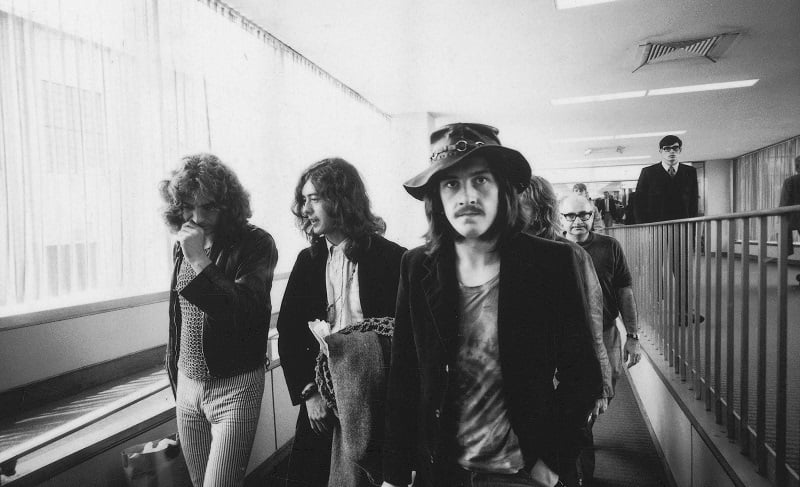Why Did Led Zeppelin Settle the Copyright Lawsuit Over ‘Dazed and Confused’?
If you look into copyright infringement cases brought against The Beatles and Led Zeppelin, you might rethink what constitutes “copying” and “plagiarism” in the musical sense.
In Zeppelin’s case, when the estate of Randy California sued for infringement on “Stairway to Heaven,” the claim centered on the opening riff. “Taurus,” by California’s band Spirit, definitely reminds you of the start of “Stairway.”
However, saying the one song copied the other would be a stretch. As Alex Ross wrote in The New Yorker, Zeppelin’s signature anthem is “a variegated tour-de-force” while “Taurus” comes off as “lazily inert.” (After a judge dismissed the original case, Led Zeppelin could face a new trial in 2019.)
When Jake Holmes sought $1 million in damages for copyright infringement on “Dazed and Confused,” Led Zeppelin settled the case out of court. This claim may have been less deniable for Jimmy Page, who was credited as the songwriter on the tune from the band’s debut album.
Page began playing ‘Dazed and Confused’ with The Yardbirds.

While lawyers arguing Page stole parts of “Stairway” couldn’t prove he owned the record, plenty of people know Page knew Holmes’s record of “Dazed and Confused.”
In fact, Page began playing the song with his previous band, The Yardbirds. The band had seen Holmes perform it at a show in New York’s Greenwich Village in 1967. Back in 2001, Holmes recalled the evening “when ‘Dazed And Confused’ fell into the loving arms and hands of Jimmy Page.”
When you hear how Holmes played the song back then, you can see why he had a claim on it. The descending riff, the quiet before the crescendos, the title, of course … they all remind you of the song for which Page later took credit.
Members of The Yardbirds even recalled buying the album in the Village the next day, and said Page did as well. Then the band worked it into their repertoire and played it on tour.
What’s more, Will Shade (who conducted the interview of Holmes) noted that The Yardbirds gave songwriting credit to Holmes when they released old recordings decades later. In other words, they considered it the work of Holmes, no questions asked.
Why Holmes didn’t ask for credit until 2010

With all this in mind, you’d be right to ask why Holmes didn’t bring up the subject prior to 2010. (That’s when he filed suit.) By then, 43 years had passed since Page and The Yarbirds shared a stage with him in New York.
When asked about claiming credit for “Dazed and Confused,” Holmes said he contacted Zeppelin after the band broke up in the early ’80s. “I understand it’s a collaborative effort,” he wrote the band. “But I think you should give me some credit at least and some remunity.”
That sounded reasonable, especially with the acknowledgement that Page and Zeppelin had done plenty with the idea. However, Holmes never heard back from the band or its reps. It wasn’t until years later that he got organized and introduced the suit.
While the actual case never made it to a jury, Page seems to have realized Holmes had a solid claim. A few years later, after Zeppelin released the live record of its 2006 reunion, fans noticed a change on the “Dazed and Confused” credits.
It now reads, “Inspired by Jake Holmes.” It may be too late to get the sum Holmes might have earned had he made the claim earlier, but we’re guessing his retirement got a bit more comfortable after the settlement.
Check out The Cheat Sheet on Facebook!


